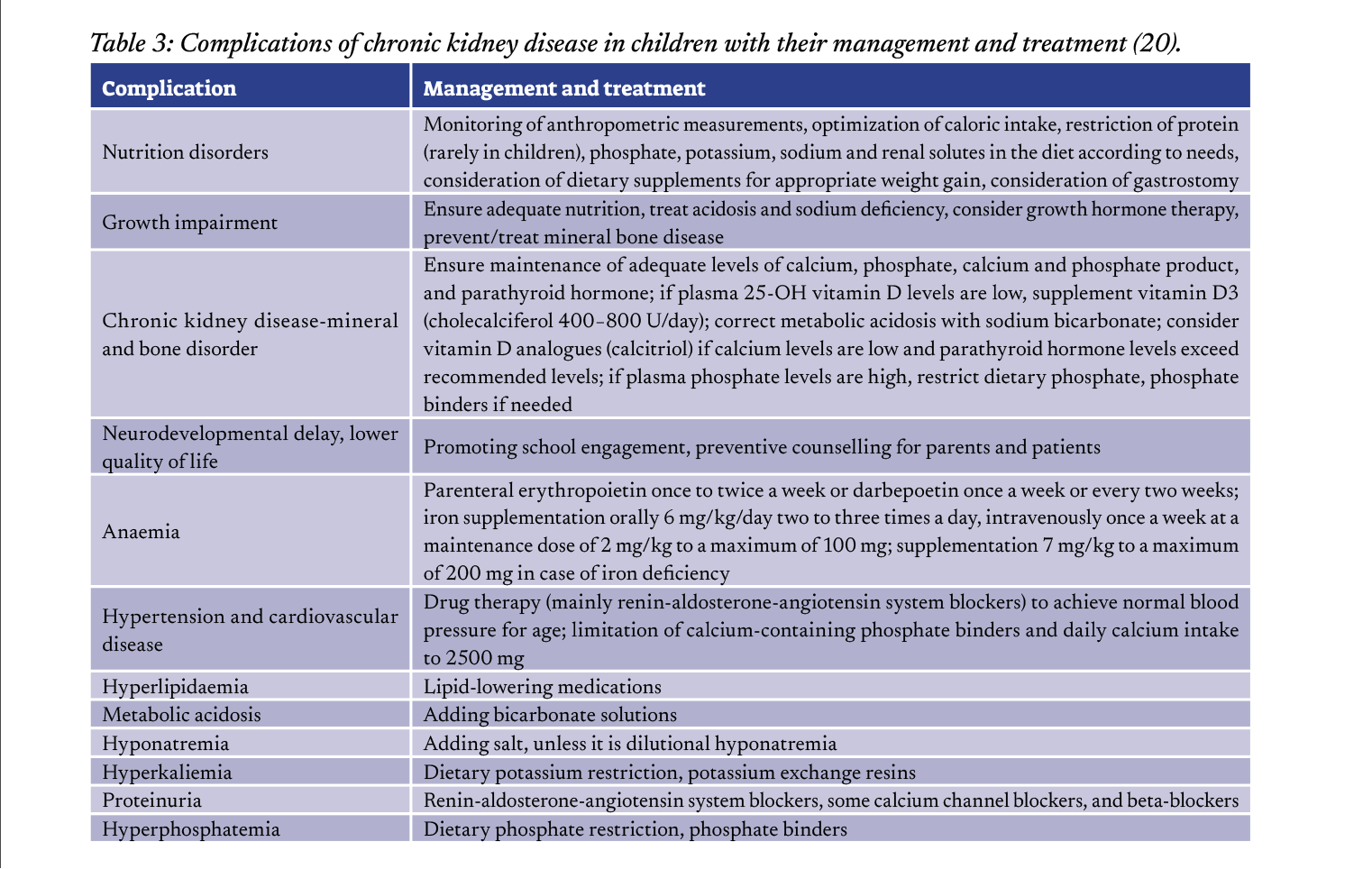Management and treatment of children with chronic kidney disease
Pristop k obravnavi in zdravljenju otrok s kronično boleznijo ledvic
DOI:
https://doi.org/10.18690/actabiomed.283Keywords:
chronic kidney disease, child, management, preventionAbstract
Chronic kidney disease (CKD) is defined as a disorder of kidney function or structure that is present for more than 3 months and has a significant impact on health with the risk of progressive loss of kidney function. New recommendations for the management of patients with CKD have recently been published. The basic management of children with CKD includes promoting a healthy lifestyle, preventing the progression of CKD, treating associated complications, and preparing the patient and their family for renal replacement therapy if needed. Maintaining a healthy lifestyle includes close monitoring of kidney function and potential complications, monitoring growth, nutrition, neurological development, and blood pressure. In the context of preventing the progression of CKD, it is important to treat the underlying disease, if possible, and prevent further acute kidney injury. Well-controlled blood pressure as well as proteinuria have been shown to slow the progression of kidney disease in children, and are therefore vital. CKD significantly affects the quality of life of a child and his family. Comprehensive treatment of a child includes treatment by a multidisciplinary team that works proactively.
Downloads
References

Downloads
Published
Issue
Section
License
Copyright (c) 2025 Mirjam Močnik, Nataša Marčun Varda (Author)

This work is licensed under a Creative Commons Attribution 4.0 International License.